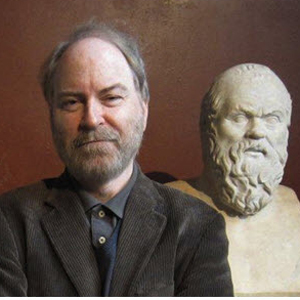April 27, 2017
“What can embodied cognition theories tell us about behavior?”
4:00pm – 6:00pm
Fayerweather room 513
What is the explanandum of embodied cognition theories? Is it cognition, or, is it ultimately behavior? Despite discussions about the distinction between cognition and behavior, and despite the focus on defining the bounds of cognition, definitions of behavior are conspicuously scarce. If we wish to understand behavior, trying to define it may reorient our concerns with the variety of cognitive theories that are available.
We are delighted to be joined by Prof. Shaun Gallagher and Prof. Frédérique de Vignemont to discuss this topic. Please check back here for a more developed abstract and suggested readings to be announced in due course.
Readings:
Gallagher, S. (2014). Pragmatic interventions into enactive and extended conceptions of cognition. Philosophical Issues, 24(1), 110-126.
Gallagher, S., & Bower, M. (2014). Making enactivism even more embodied. AVANT. Pismo Awangardy Filozoficzno-Naukowej, (2), 232-247.
 Shaun Gallagher is the Lillian and Morrie Moss Professor of Excellence at the University of Memphis. His areas of research include phenomenology and the cognitive sciences, especially topics related to embodiment, self, agency and intersubjectivity, hermeneutics, and the philosophy of time. Dr. Gallagher has a secondary research appointment at the University of Wollongong, Australia, and is Honorary Professor of Philosophy at both the University of Copenhagen and Durham University (UK), and Honorary Professor of Health Sciences at the University of Tromsø, Norway. He has held visiting positions at the Cognition and Brain Sciences Unit, Cambridge University; the Center for Subjectivity Research, University of Copenhagen; the Centre de Recherche en Epistémelogie Appliquée (CREA), Paris; the Ecole Normale Supériure, Lyon; and at the Humboldt University in Berlin. In Spring 2016 he will be Senior Research Fellow at Keble College, University of Oxford.
Shaun Gallagher is the Lillian and Morrie Moss Professor of Excellence at the University of Memphis. His areas of research include phenomenology and the cognitive sciences, especially topics related to embodiment, self, agency and intersubjectivity, hermeneutics, and the philosophy of time. Dr. Gallagher has a secondary research appointment at the University of Wollongong, Australia, and is Honorary Professor of Philosophy at both the University of Copenhagen and Durham University (UK), and Honorary Professor of Health Sciences at the University of Tromsø, Norway. He has held visiting positions at the Cognition and Brain Sciences Unit, Cambridge University; the Center for Subjectivity Research, University of Copenhagen; the Centre de Recherche en Epistémelogie Appliquée (CREA), Paris; the Ecole Normale Supériure, Lyon; and at the Humboldt University in Berlin. In Spring 2016 he will be Senior Research Fellow at Keble College, University of Oxford.
Professor Gallagher holds the Anneliese Maier Research Award [Anneliese Maier-Forschungspreis] (2012-17), a recently established 5-year Humboldt Fellowship. Currently he’s a sponsor of two post-doctoral research grants at the University of Memphis: the Marie Curie International Outgoing Fellowship, held by Dylan Trigg (2014-2016), and the Humboldt Feodor Lynen Research Postdoctoral Fellowship, held by Anika Fiebich (2015). He was recently principle investigator on a European Commission Marie Curie Actions Grant: TESIS: Towards an Embodied Science of Intersubjectivity(2011-15), and a Templeton Foundation grant (2011-2013) which funded an empirical and phenomenological study of astronauts’ experiences during space flight [link]. He’s also been co-PI on the NSF grant: Metaphor-Based Learning of Physics Concepts Through Whole-Body Interaction in a Mixed Reality (2011-14), and the Australian Research Council (ARC) grant: Embodied Virtues and Expertise (2010-13). Gallagher is a founding editor and a co-editor-in-chief of the journal Phenomenology and the Cognitive Sciences.
 Frédérique de Vignemont is a CNRS research director at the Institut Jean Nicod in Paris. She pursues philosophical and experimental investigation of the notion of self-awareness, in its relation to social awareness and to bodily awareness. Questions about the notion of embodiment have been at the core of her research. The recent theoretical trend of embodied cognition tries to bring the mind to the body. In her work, she returns the body to the mind. She has a forthcoming book, Mind the Body, on bodily self-awareness to be published by Oxford University Press. She has published more than 50 peer-reviewed articles and book chapters on social cognition, empathy, bodily sensations, pain, touch, body schema, peripersonal space, and the sense of bodily ownership.
Frédérique de Vignemont is a CNRS research director at the Institut Jean Nicod in Paris. She pursues philosophical and experimental investigation of the notion of self-awareness, in its relation to social awareness and to bodily awareness. Questions about the notion of embodiment have been at the core of her research. The recent theoretical trend of embodied cognition tries to bring the mind to the body. In her work, she returns the body to the mind. She has a forthcoming book, Mind the Body, on bodily self-awareness to be published by Oxford University Press. She has published more than 50 peer-reviewed articles and book chapters on social cognition, empathy, bodily sensations, pain, touch, body schema, peripersonal space, and the sense of bodily ownership.